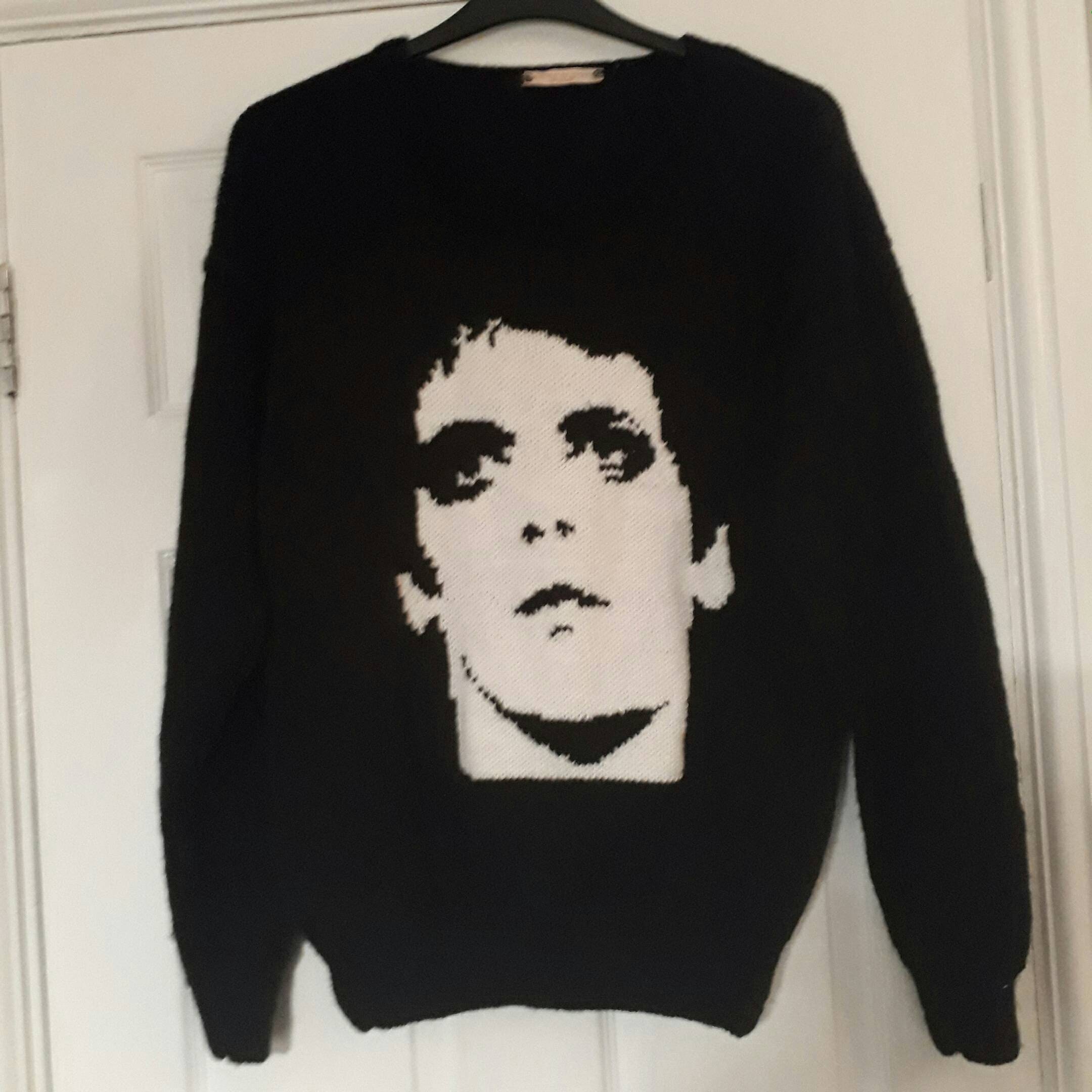
This core difference between the two artists is thrown into stark relief when questions of queerness come up. But if Bowie is one of the “pseudo-sexual anarchists” and Reed is “the real thing,” keep in mind that that doesn’t necessarily tell you which one of them makes better records. This would be to overlook Reed’s dodgy, noncommittal career path as well as Bowie’s stunning moments of earned emotional sincerity. One might agree with what the RCA radio ad suggests: Bowie is a phony and Reed is authentic. Where Bowie wants to create his own dystopian world, Reed wants to shine a light on the dark places of the real one. Lou’s version of distance from the audience is understatement and lack of affect while he tells, essentially, the truth about himself and the world around him.

Bowie wanted distance so he could create a fantasy, an artificial icon with the power to transfigure culture and make it less boring. It could give a f**k.” But this distance from and indifference to the audience, which came so naturally to Lou Reed, became, in Bowie’s hands, a gateway to a pure artifice that had nothing to do with the Velvet Underground’s plainspoken, tough prose-poetry. “The music was savagely indifferent to my feelings,” he wrote in New York Magazine in 2003. This is an aspect he noticed immediately in the Velvet Underground, and part of what made hearing them such a sea change moment for him. Throughout his career Bowie aims to create distance between himself and his work, between himself and his audience. As music critic Ken Tucker put it: “In the face of the hippie era’s sincerity, intimacy and generosity, Bowie presented irony, distance and self-absorption.” In an era where nobody trusts anyone they hear on the radio or see on TV, it was refreshing to find someone who wasn’t pretending to be just like the regular folks in the audience. Together, they present an alternative to the future of rock music a million miles away from the likes of Three Dog Night. Bowie, whether to his credit or discredit, took him there. In the process of capitalizing on his “real”-ness, he reaches an apex of phoniness which he will never match in all his career. So Reed is advertised as honest, as opposed to all the phonies. The sound and style of Transformer would in many ways define Reed’s career in the 1970s, and while it led him into a style that proved to be a dead end, you can’t deny that Bowie and Ronson gave their hero a new lease on life - and a solid album in the bargain. Ronson adds some guitar raunch to “Vicious” and “Hangin’ Round” that’s a lot flashier than what Reed cranked out with the Velvets, but still honors Lou’s strengths in guitar-driven hard rock, while the imaginative arrangements Ronson cooked up for “Perfect Day,” “Walk on the Wild Side,” and “Goodnight Ladies” blend pop polish with musical thinking just as distinctive as Reed’s lyrical conceits.Īnd while Reed occasionally overplays his hand in writing stuff he figured the glam kids wanted (“Make Up” and “I’m So Free” being the most obvious examples), “Perfect Day,” “Walk on the Wild Side,” and “New York Telephone Conversation” proved he could still write about the demimonde with both perception and respect. Musically, Reed’s work didn’t have too much in common with the sonic bombast of the glam scene, but at least it was a place where his eccentricities could find a comfortable home, and on Transformer Bowie and his right-hand man, Mick Ronson, crafted a new sound for Reed that was better fitting (and more commercially astute) than the ambivalent tone of his first solo album.

David Bowie has never been shy about acknowledging his influences, and since the boho decadence and sexual ambiguity of the Velvet Underground’s music had a major impact on Bowie’s work, it was only fitting that as Ziggy Stardust mania was reaching its peak, Bowie would offer Lou Reed some much needed help with his career, which was stuck in neutral after his first solo album came and went. It was produced by David Bowie and Mick Ronson and was ranked number 194 on Rolling Stone magazine’s list of the 500 greatest albums of all time.
#Lou Reed Transformer Zip download
Lou Reed – Transformer (1972/2015) FLAC (tracks) 24 bit/96 kHz Time – 37:06 minutes 774 MB Genre: Rock Studio Master, Official Digital Download Source: HDTracks Artwork: Front cover © RCA Records Recorded: August 1972 at Trident Studios, London Released in 1972, Transformer is Lou Reed’s second studio album. Velvet Underground New York City T-Shirt Rock Band NYC Lou Reed.

#Lou Reed Transformer Zip zip
Zip Up Sweatshirt Women Lou Reed The Best Of Lou Reed.


 0 kommentar(er)
0 kommentar(er)
